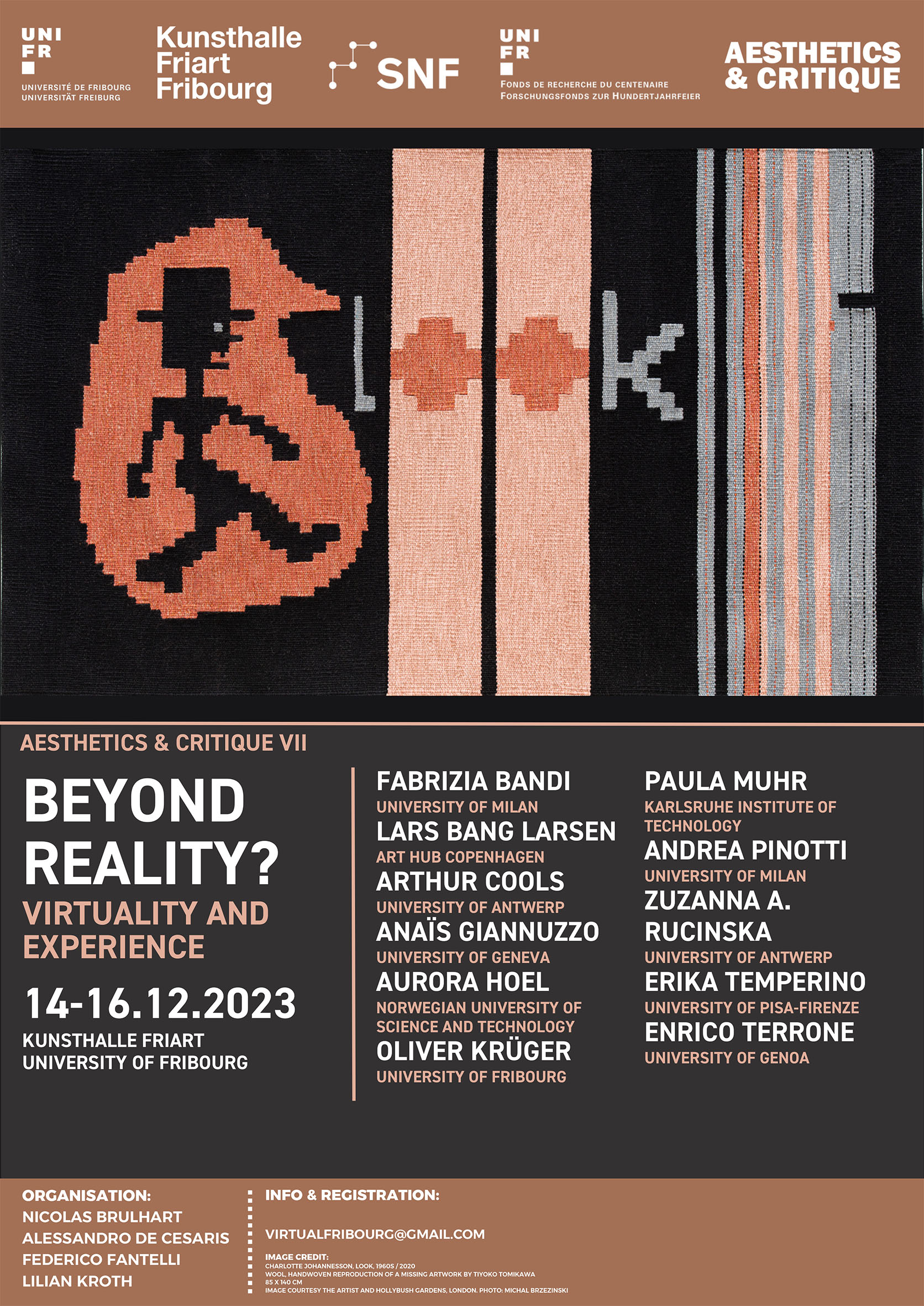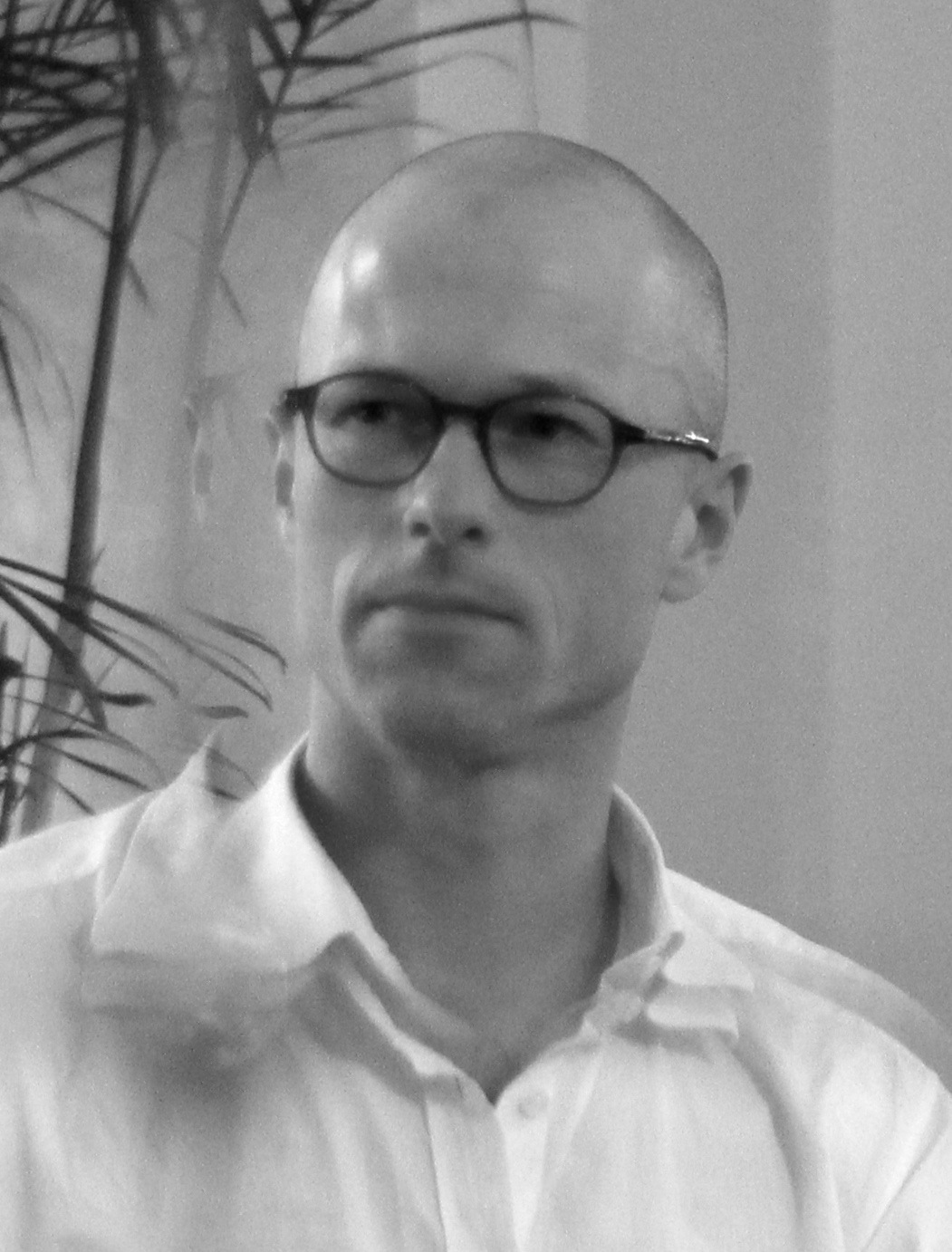Introduction :
The philosophical debate concerning virtuality has so far privileged metaphysical issues, asking whether or not virtual spaces and objects should be considered as real or illusory. With this conference, we suggest bracketing such metaphysical questions for a while and focus instead on the relationship between virtuality and experience. In this framework, we would like to favour a phenomenological approach that understands virtuality as a mode of experience that is often mediated by technology.
The range of questions that this conference aims to address includes, but is not limited to, the following: What does it mean to experience ‘virtuality’? What is the phenomenological structure of the virtual? How does experiencing a virtual world reshape our ordinary lives? What is the relationship between the virtual and the imaginary? What role does immersivity play in virtual environments? What distinguishes VR devices from other media? What is the space for empathy in virtual interactions? How is personal identity preserved but also transformed within virtual worlds?
About Take Me to Another World: Charlotte Johannesson and the externality of media and systems by Lars Bang Larsen :
“In dialogue with the dissent of its time - including sixties counterculture, seventies militancy, and punk - Charlotte Johannesson’s home grown art production challenged late modern aesthetic sensibilities with its mix of escape and confrontation, craft and technology.
In my talk I will pursue three strands of virtuality within Charlotte’s work, namely machinic, psychedelic and militant virtuality: These were three ways - or so I argue - with which she engaged with media and systems and their externalities – how she turned media and systems inside-out, to put it simply, including the social system of art.
By machinic virtuality I am inspired by Deleuze and Guattari’s ‘abstract machine’, their term for the tendency and probable development of an assemblage; psychedelic virtuality concerns a counter-phenomenological style of perception that questions any notion of a transparent I; and militant virtuality might be thought of as a speculative yet material dis-figuration of political scenes of representation.”
Biographies :
Lars Bang Larsen is a writer, curator, and art historian, and Head of Art & Research at Art Hub Copenhagen (AHC). He has researched the histories of politics and aesthetics as they have played out in exhibition-making, and in encounters between art and countercultures in the 19th and 20th centuries. His PhD was on the subject of psychedelic concepts in neo-avant-garde art (2011). Lars has (co-)curated exhibitions such as documenta: Politik und Kunst (2021) and Mud Muses. A Rant About Technology (2019/20), and his books include The Model (2010) and Arte y Norma(2016). He has been affiliated with institutions such as Moderna Museet, Stockholm, Haute École d’Art et de Design – Genève, and the Bienal de São Paulo.
From 1994 to 1999 Oliver Krüger studied Sociology, Archeology and Religious Studies at the University of Bonn (Germany). In his Ph.D. thesis on “Virtuality and Immortality” he analyzed the religious and philosophical context of posthumanism and transhumanism. 2004 the thesis was awarded by the German Association for the History of Religion. After his Ph.D. he worked on the significance of the Internet for the Wicca movement in a research project at the University of Heidelberg. From 2005-2007 Krüger served as visiting lecturer and visiting research fellow at the Center for the Study of Religion at Princeton University while exploring the alternative funeral culture in the United States, especially the Funeral Consumer’s Alliance. In 2007 he was appointed to the chair for Religious Studies (Religionswissenschaft) at Fribourg University, from 2011-2014 he was president of the Swiss Association for the Study of Religion. In 2012/13 he was invited as fellow to the International Centre for Advanced Studies Morphomata at the University of Cologne (Germany).
The conference continues on December 15 and 16 at the University of Fribourg with :
Fabrizia Bandi (University of Milan)
Arthur Cools (University of Antwerp)
Anaïs Giannuzzo (University of Geneva)
Aurora Hoel (Norwegian University of Science and Technology)
Paul Muhr (Karlsruhe Institute of Technology)
Andrea Pinotti (University of Milan)
Zuzanna A. Rucinska (University of Antwerp)
Erika Temperino (University of Pisa-Firenze)
Enrico Terrone (University of Genoa)

